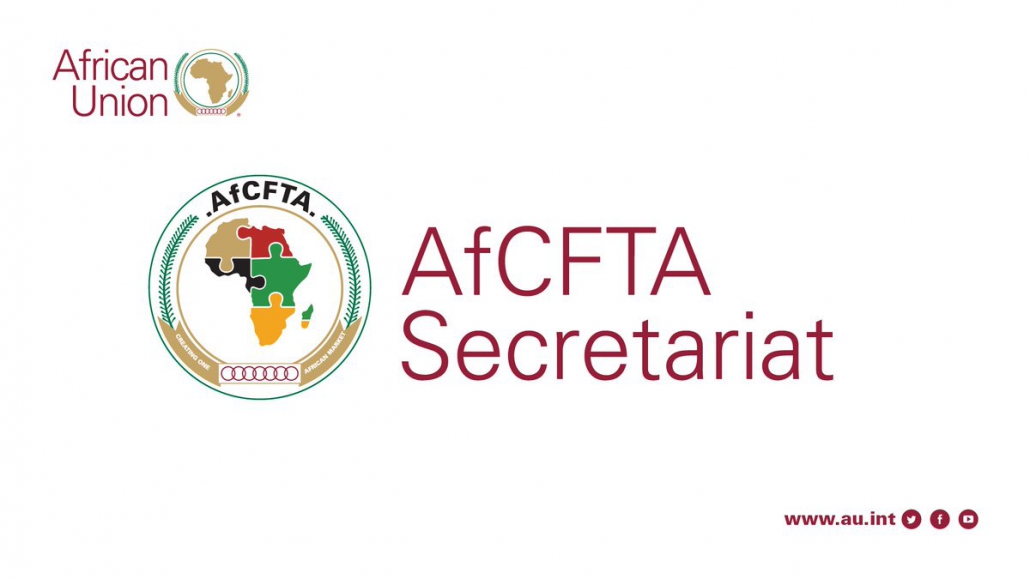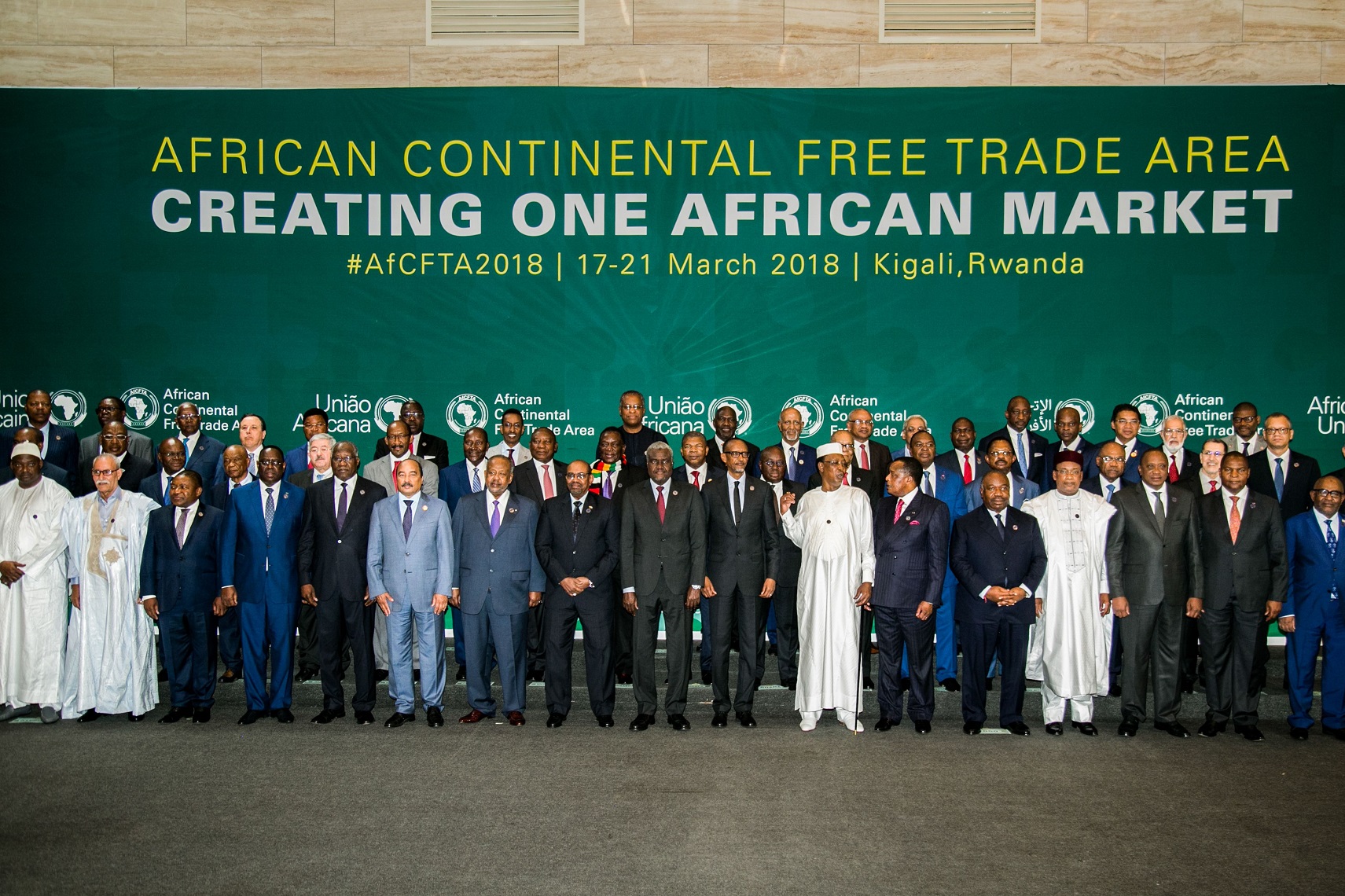The Economic Community of West African States (ECOWAS) main agenda is to develop a profitable collaboration or partnership with other member states such as The Gambia, Ghana, Guinea, Guinea-Bissau, Liberia, Mali, Niger, Nigeria, Senegal, Sierra Leone, Togo, Burkina Faso, Cabo Verde, Cote d’Ivoire, and Benin to improve the living standards and elevate economic development.
The Impact of AfCFTA on ECOWAS

The African Continental Free Trade Area also known as AfCFTA founded in the year 2018, has provided African nations with an opportunity to help over 25 million people eradicate poverty as well as increase the revenue of more than 67 million Africans who live on less than $5.50 a day.
Fifty-four out of fifty-five African countries part of the African Union have signed on to the organization’s initiative to liberalize intra-African trade in services and goods. Eritrea is the only member of the African Union that refused to sign onto AfCFTA.
The aim of the AfCFTA initiative is to help promote trading within Africa’s continent by making it easy for the approved 31 African Union Member States to trade freely. It is expected to raise intra-Africa trade from a current level of about 13% to 25% or more from a stronger cooperation and partnership of trade liberalization.
With free trades beginning as of 1 January 2021 due to Covid-19, AfCFTA reports agreements on investment, intellectual property rights, competition and dispute settlement, and trade in goods and services.
The impacts of AfCFTA on the Economic Community of West African States (ECOWAS) are considerable, and conditions for dealing with them may be somewhat controversial. Let’s take a look at how AfCFTA has impacted some of these ECOWAS nations.
Ghana (AfCFTA)
In places like Ghana, traders can import items manufactured in ECOWAS member states to the country without import duties being charged, whereas exports to countries in the rest of Africa have been subject to import duties.
After the President of Ghana Nana Addo Dankwa Akufo-Addo handed over the Secretariat to the Chairperson of the African Union Commission, Moussa Faki Mahamat, at an event held in Accra, on 17 August. He announced at the ceremony the arrangement of a private convenience to fill in as the authority home of the Secretary-General of the AfCFTA.
He also made mention how strongly he believes Africa’s prosperity depends greatly on intra-African trade. “Increase in trade is the surest way to deepen regional integration in Africa.
The Ghanaian Trade Minister for Trade and Industry Mr. Alan John Kwadwo Kyerematen mentioned that the foundation of a Streamlined commerce Zone for Africa is the principal significant structure block for the Economic Community of West African States (ECOWAS), after which we hope to progress into a Customs Union prior to arriving at our definitive objective.
He believes Ghanaians can benefit greatly from a free trade area in Africa, which includes the increment of intra-African trade by up to 52% by the year 2022, bringing together existing shattered markets, economies of scale, and value addition to Africa’s natural resources and economic diversification.
Senegal (AfCFTA)
In March 2018, Senegal among the members of the Economic Community of West African States (ECOWAS) signed an agreement to the African Continental Free Trade Area agreement (AfCFTA) and became a few steps closer to a nation-wide free market for merchandise and ventures. The AfCFTA has been effective since 30, May 2019, but due to the outbreak of the coronavirus, all 54 nations that confirmed the arrangement, including Senegal couldn’t operate until 1 January 2021.
According to trade.gov Senegal does not have any bilateral taxation treaty with the United States. The website also states that Senegal has finalized agreements to refrain from double taxation with some 15 partners, including Canada, Belgium, France, Egypt, Lebanon, Kuwait, Mauritania, Morocco, Mauritius, Norway, Qatar, Chinese Taipei, Tunisia, Portugal, and Malaysia.
Ivory coast (AfCFTA)
The international financial institution (World Bank) sees the agreement supporting Africa’s revenue by $450 billion and eliminating 30 million individuals out of extreme poverty by the year 2035, on condition that it goes hand in hand with the crucial policy reform and measures to encourage smooth trade.
In the near term, lower trade expenses could assist the nation with moderating yield misfortunes of between $37 billion and $79 billion because of the Covid flare-up in 2020, as indicated by the Washington-based bank. It predicts Ivory Coast and Zimbabwe, where trade costs are among the state’s highest, to gain the most from the agreement, with revenue set to ascend by 14%.
Benin (AfCFTA)
The African Continental Free Trade Area (AfCFTA) On Jan. 1, officially went into force. Benin and Nigeria on July 7, 2019, signed an agreement forming the African Continental Free Trade Area (AfCFTA). The President of Benin Patrice Talon consented to the arrangement uninvolved of the 12th Extraordinary Summit of the AU Heads of State and Government in Niamey, capital of Niger.
Nigeria (AfCFTA)
The AfCFTA also known as the world’s largest free trade area, still undergoes some challenges after its establishment. According to recent news, Nigeria, for example, opened up four of its territorial borders to trade in December 2020, over a year in the wake of shutting them to attempt to diminish carrying, hose the illicit inflow of drugs, and protect Nigerian manufactures. Be that as it may, Nigeria actually disallows up to 26 merchandise from being brought into the country, and its National Bank has additionally denied unfamiliar trade at true market rates to merchants in excess of 40 different goods.
Cameroon (AfCFTA)
On 7th July 2019 after the African Continental Free Trade Area (AfCFTA) was officially launched in Niamey, Niger, the Cameroonian authorities ratified the AfCFTA on July 19, 2019.
From the point of view of a vast number of financial analysts and experts, the AfCFTA has numerous benefits.
To start with, it will unite 1.3 billion individuals, make a $3.4 trillion economic block and bring in a whole new era of advancement in the African continent. Secondly, it will empower African economies to fortify South-South collaboration, overcome new business sectors, and broaden the origins of supply.
Lastly, as stated by the UNECA (United Nations Economic Commission for Africa) , intra-African trade could shoot-up by over half and even two fold within 10 years after 2021 of the ACFTA being enforced as compared to the existing 15%.
According to the world bank, West Africa could experience the largest decrease in the number of individuals living in extreme poverty—roughly a decrease of about 12 million Africans which is higher than a third of the entire African population.



